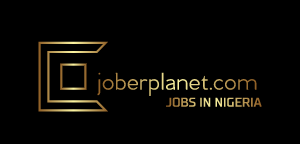The Joint Admissions and Matriculation Board (JAMB) syllabus is a vital roadmap for students preparing for their examinations. In the realm of literature, this guide unveils the intricacies of three major genres: Drama, Prose, and Poetry. Let’s delve into the objectives, content, and recommended textbooks for each genre, as outlined in the JAMB syllabus.
Drama:
Objectives:
- Identify various types of drama.
- Analyze the contents of different dramatic types.
- Compare and contrast features of different dramatic types.
- Demonstrate knowledge of dramatic techniques in prescribed texts.
- Differentiate between styles of selected playwrights.
- Determine themes, plots, and socio-political contexts in prescribed texts.
Content:
- Types: Tragedy, Comedy, Tragicomedy, Melodrama, Farce, Opera, etc.
- Dramatic Techniques: Characterization, Dialogue, Flashback, Mime, Costume, Music/Dance, Acts/Scenes, Soliloquy, Lighting, etc.
- Interpretation of Prescribed Texts: Theme, Plot, Socio-political context, Setting.
General Literary Principles:
Objectives:
- Identify literary terms in drama, prose, and poetry.
- Differentiate between literary terms and principles.
- Use literary terms appropriately.
Content:
- Literary Terms: Foreshadowing, Suspense, Monologue, Dialogue, Symbolism, Figures of Speech, Satire, etc.
- Literary Principles: Direct imitation in play, Verification in drama and poetry, Narration of people’s experiences, Relationship between literary terms and principles.
Literary Appreciation:
Objectives:
- Determine literary devices in given passages.
- Provide meaningful interpretations.
- Relate extracts to real-life experiences.
Content:
- Unseen passages/extracts from Drama, Prose, and Poetry.
Poetry:
Objectives:
- Identify different types of poetry.
- Compare and contrast features of poetic types.
- Determine devices used by poets.
- Appraise poetry as an art with moral values.
Content:
- Types: Sonnet, Ode, Lyrics, Elegy, Ballad, Panegyric, Epic, Blank Verse, etc.
- Poetic Devices: Structure, Imagery, Sound (Rhyme/Rhythm, Repetition, Pun, Onomatopoeia), Diction, Persona, Thematic preoccupation, Socio-political relevance, Style.
Prose:
Objectives:
- Differentiate between types of prose.
- Identify narrative techniques in prescribed texts.
- Determine an author’s narrative style.
- Relate prescribed texts to real-life situations.
Content:
- Types: Fiction, Novel, Novella/Novelette, Short Story, Non-fiction, Biography, Autobiography, Memoir, Faction.
- Narrative Techniques/Devices: Point of View (Omniscient/Third Person, First Person), Characterization, Language.
Recommended Textbooks:
- Obafemi. O. and Agoi (eds) Of Shadows and Rainbows – Musings in Times of Covid (An Anthology of Poems, Plays, and Short Stories) PEN Nigeria, Online
- Hayward, J. (ed.) (1968) The Penguin Book of English Verse, London: Penguin
- Johnson, R. et al. (eds.) (1996) New Poetry from Africa, Ibadan: UP Plc
- Kermode, F. et al. (1964) Oxford Anthology of English Literature, Vol. II, London: OUP
- Nduke Ofiono and Odoh Diego Okenyodo (eds) Camouflage: Best of Contemporary Writing from Nigeria, an Anthology of New Nigerian Writers, Mace Books Association, 2021, New edition.
- Parker, E.W. (ed.) (1980) A Pageant of Longer Poems London: Longman
- Senanu, K. E. and Vincent, T. (eds.) (1993) A Selection of African Poetry, Lagos: Longman
- Soyinka, W. (ed.) (1987) Poems of Black Africa, Ibadan: Heinemann
- Critical Text: Abrams, M. H. (1981) A Glossary of Literary Terms, (4th Edition) New York, Holt Rinehalt and Winston
- Emeaba, O. E. (1982) A Dictionary of Literature, Aba: Inteks Press
- Murphy, M. J. (1972) Understanding Unseen, An Introduction to English Poetry and English
FAQs related to the JAMB Literature-in-English syllabus:
1. What are the key areas covered in the JAMB Literature-in-English syllabus?
The JAMB Literature-in-English syllabus typically covers three major areas:
- Prose: Study of novels and short stories from African and non-African authors.
- Poetry: Analysis of prescribed poems from African and non-African poets.
- Drama: Study of plays, including African and non-African works.
Each section focuses on understanding themes, plot, characterization, and literary devices.
2. How many texts are recommended in the JAMB Literature-in-English syllabus?
The syllabus provides a list of 12 recommended texts:
- 3 prose texts, 3 drama texts, and 4 poetry texts (including African and non-African works).
- Additionally, two unseen passages are included for comprehension and analysis.
3. Are there any specific skills required for the JAMB Literature-in-English exam?
Yes, the syllabus emphasizes developing the following skills:
- Ability to identify and explain literary devices (e.g., metaphor, simile, irony).
- Understanding plot structure, themes, and settings.
- Ability to analyze characters and their roles in texts.
- Interpretation of poetic techniques and imagery in poetry.
4. Does the JAMB Literature-in-English syllabus change annually?
While the syllabus does not change every year, JAMB occasionally updates the list of recommended texts. It is essential to confirm the current syllabus and texts for the examination year on the official JAMB website or the latest JAMB brochure.
5. Where can I access the JAMB Literature-in-English syllabus?
- The syllabus is available on the official JAMB website (jamb.gov.ng).
- You can also find it in the JAMB UTME brochure provided at registration centers or purchase JAMB study guides from bookstores.
Concl-usion
this comprehensive guide serves as a valuable resource for JAMB literature candidates, providing insights into the diverse world of drama, prose, and poetry. Use it to enhance your understanding and excel in your examinations.
